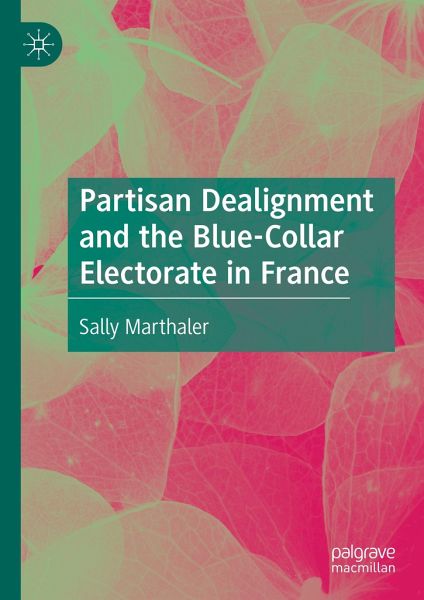
Partisan Dealignment and the Blue-Collar Electorate in France
Versandkostenfrei!
Versandfertig in 6-10 Tagen
53,99 €
inkl. MwSt.
Weitere Ausgaben:

PAYBACK Punkte
27 °P sammeln!
This book explores partisan dealignment in France between 1978 and 2012, with a particular focus on the blue-collar electorate and its relationship with the political parties of the established left (the Socialist Party, or Parti socialiste, and the Communist Party, or Parti communiste français). It highlights the distinctiveness of blue-collar partisanship in a context of significant political, social and economic change and compares it with patterns of partisanship in the wider electorate. The voter-party relationship is self-evidently a bilateral one which can be modified both on the deman...
This book explores partisan dealignment in France between 1978 and 2012, with a particular focus on the blue-collar electorate and its relationship with the political parties of the established left (the Socialist Party, or Parti socialiste, and the Communist Party, or Parti communiste français). It highlights the distinctiveness of blue-collar partisanship in a context of significant political, social and economic change and compares it with patterns of partisanship in the wider electorate. The voter-party relationship is self-evidently a bilateral one which can be modified both on the demand side, because voters change, and on the supply side, because parties change. Four factors are identified as playing a key role in partisan dealignment: value change, policy convergence, political sophistication and political trust. There is compelling evidence that while each of these makes a contribution, it is changes in the behaviour of the parties that are driving partisan dealignment among blue-collar workers in France.












